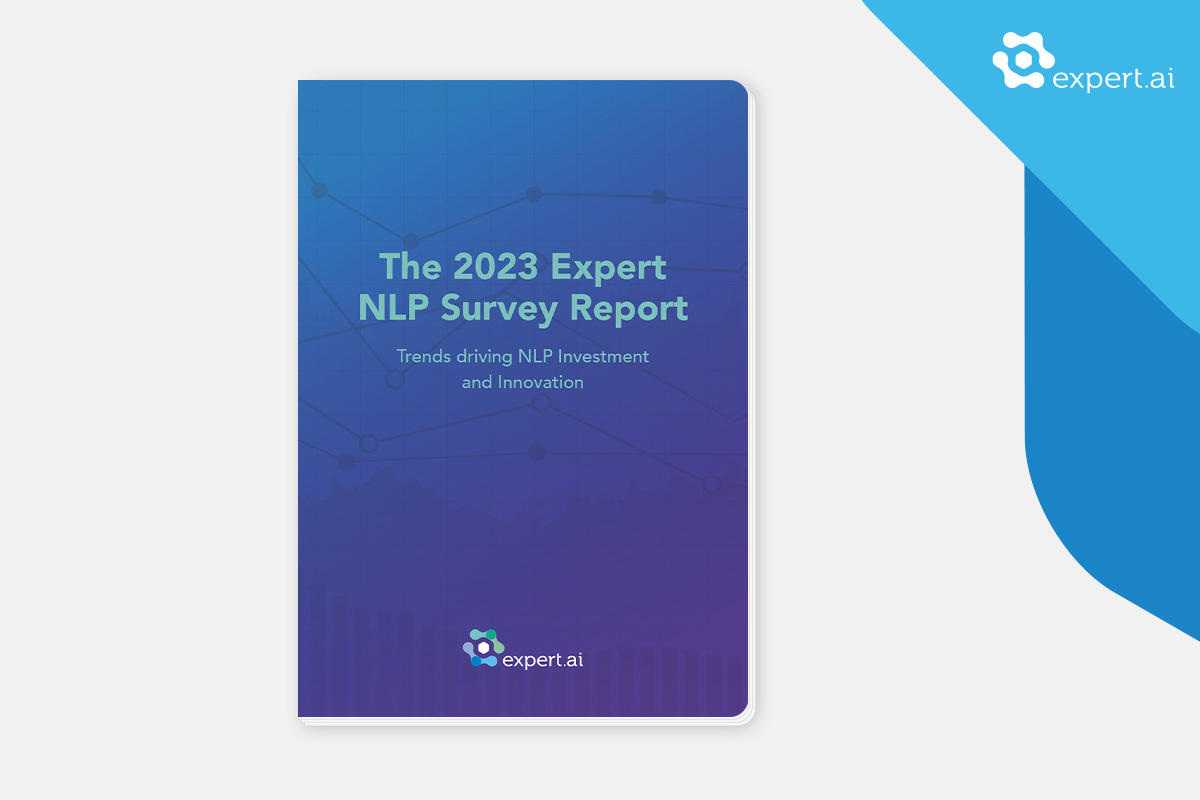Main findings from the latest AI industry survey and report by expert.ai:
- More than three-quarters of organizations surveyed expect to spend more on NLP projects in the next 12-18 month
- 67% of businesses with NLP models in production for 5+ years still deal with accuracy challenges
- 74% say they consider how responsible (explainable, energy efficient and unbiased) each AI approach is when selecting their solution
More than three-quarters of businesses with active natural language processing (NLP) projects plan to increase spending on in the next 12 to 18 months, according to new data from expert.ai, a leading company in artificial intelligence (AI) for language understanding. The finding is one of many data points culled from a recent survey detailed in expert.ai’s new report, The 2023 Expert NLP Survey Report: Trends driving NLP Investment and Innovation.
The report shows a burgeoning appetite for NLP-driven efficiencies that reduce costs, drive growth and offer a competitive advantage. NLP enables businesses to automatically interpret unstructured data, bridging the language gap between humans and technology. As a result, there has been an increase in use cases across business operations, ranging from marketing to finance and customer care to sales. The research was carried out by The AI Journal based on interviews with NLP practitioners in business and technical roles across North America and Europe. In fact, 80% of those surveyed have NLP models in production, with 47% prioritizing their use for data protection and governance (i.e. GDPR and PII).
“For companies employing NLP solutions for several years, the most compelling arguments for the technology are improvements in efficiency, mitigating risk and cost reduction. AI has become embedded in their business models, and NLP is allowing them to create new opportunities,” said Marco Varone, Founder & Chief Technology Officer at expert.ai. “Still, organizations face challenges aligning with stakeholders over which use cases to prioritize, and in justifying the costs associated with NLP modeling and tools.”
The report identifies the top two challenges faced by businesses adopting NLP solutions as aligning with stakeholders on how best to leverage NLP and the associated costs, both acknowledged by 38% of respondents. Data also reveals the maturity of an organization’s NLP approach dictates the hurdles it faces. Of those still evaluating NLP use cases, the greatest challenge is data security and governance (64%). For businesses two to four years into NLP production, the biggest hurdle is building the business case for projects (42%). In businesses with five-plus years of NLP models, 67% cite achieving the accuracy or quality needed to put those models into production as the priority.
The majority of companies use multi-solution NLP models, combining cloud, open-source, platform and point solutions. Recognizing that most projects benefit from the flexibility of a hybrid AI platform, 52% of respondents use a mixed machine learning and symbolic or rules-based approach, while 79% employ machine learning with either deep learning or knowledge graph technology.
Organizations are measuring the return on investment for NLP projects based on time to production (54%), efficiency improvements (53%) and cost reduction (53%). However, the report highlights a lag in understanding NLP capabilities, with opportunities being missed. “Without a clear understanding of the varying attributes of alternative technologies, many businesses fail to exploit the full capability of NLP, and risk fumbling the competitive advantage it can deliver,” warned Varone.
About the report
The survey was conducted among 150 NLP practitioners with active or planned projects. Research took place across the USA and Europe and the interviews were conducted online by AI Journal and Sapio Research in 2022.


